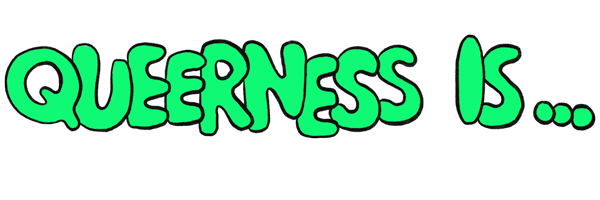The Best Part Of Pride Is Making Fun Of Rainbow Capitalism
Every June, queer people across the internet — especially on Twitter and, more recently, TikTok — engage in an important Pride tradition: dunking on the year’s overwhelming and nauseating display of rainbow capitalism. Also known as “pink capitalism” or “pinkwashing,” rainbow capitalism is a term used to describe the commercialization and commodification of LGBTQ movements, most notably Pride.
In the same way that whitewashing and greenwashing absorb historical and environmental struggles, rainbow capitalism exploits marginalized communities by turning them into markets, selling them back to them as a product, and commodifying pretty much everything about every part of their lives. Rainbow capitalism’s flattening of the LGBTQ struggle is the reason why so many people are unaware of the roles of Black and brown trans women in creating Pride — despite the fact that the month-long celebration is meant to commemorate them. Rainbow capitalism is why Pride month is one of the spirit-and-alcohol industry’s biggest promotional seasons, despite the disproportionately high rates of substance abuse among LGBTQ people. But perhaps most importantly — and disrespectfully — rainbow capitalism has produced some of the most offensively ugly branding out there.
AdvertisementADVERTISEMENT
Take, for example, Red Lobster’s recent Instagram post featuring the beloved Cheddar Bay Biscuits adorned in the most miserable rainbow filter: Is it an earnest attempt to appeal to queer consumers? Or, could it be a meme commenting on the absurd lengths rainbow capitalism will go to profit off queer struggles? It almost doesn’t matter, it's so tasteless; it’s cringe.
One of this year’s most destabilizing specimens of rainbow capitalism happened when Mean Girls actor Jonathan Bennet (he played Aaron Samuels) announced his engagement to Jaymes Vaughan and went on Twitter to promote the engagement ring. The ring is available to purchase through Kay Jewelers, and is named “Our Ring,” Bennet explains, “not just because it’s me and Jaymes’, but it’s ‘Our Ring’ because it’s for the entire community,” adding that “if you are gay and part of the LGBT + community” you can go get this ring. Is this as bad as this wildly homophobic 2017 Tweet from Chipotle? Hard to say, but that Chipotle tweet is always worth revisiting because it’s so bad.
I need their........pharmacist pic.twitter.com/HQzz2v6KOE
— maybe: Phillip (@MajorPhilebrity) June 3, 2021
Leave it to the LGBTQ community’s Very-Online Unit to turn these hopeless ads into comedy gold. The reaction to the corporate world’s embarrassing efforts to bond with *the gays* almost justifies the “Homo Estás” of it all. These responses aren’t even aimed at any one brand, necessarily, but just speak to the general mess that is rainbow capitalism, in general. For example, in a Tweet that would be viral in a just world, writer Emma Specter stated: “i can't finish unless a brand has JUST wished me happy pride.” And, a TikToker by the username of @angelmamii is seen walking up to the camera, rainbow-faced, and declares: “Courage… is being yourself… every day… and with your sexuality…” before burdening us with a soliloquy of buzzwords. On Twitter, Jes Tom, a standup comic best-known for hosting Netflix’s Instagram show Dear Jes, received an unsolicited merch box that prompted them to re-examine their life as a queer influencer. It was the muscle shirt that read “Ask me about my pronouns” that triggered the existential dread, Tom tweeted: “become a queer influencer, they said, it comes with the worst merch on earth.”
AdvertisementADVERTISEMENT
But, what kind of kink would move brands to submit themself to the humiliation and degradation of getting dragged on the internet by vicious queers? I asked an advertising industry pro, who specializes in logo design and branding, to find out exactly why a brand would go out of its way to present us so poorly. Drew* is an art director at an advertising agency and said: “There is a lot of social pressure for brands to do something for every single awareness month — especially now in the culture that we live in,” adding that “if you don’t do it, it calls more attention to your brand than if you do do it.” This impulse to take a stand, even if you don’t stand for anything, speaks to a larger cultural misunderstanding of what accountability means. It’s the same thinking that demanded influencers take a stand on the humanitarian crisis in Palestine — even if this meant that people rushed into spreading unverified information — and even misinformation. Drew also noted that there are limits to how authentic a brand can seem when participating in rainbow capitalism, explaining that while changing the colours of the logo is an easy way to acknowledge the moment, it can feel synthetic — especially when it comes from brands that have caused more harm than good.
Brands like these are called out in more confrontational memes, which show rainbow logos of companies like AT&T, Pfizer, and General Electric next to a one-line statement of how many millions they’ve each donated to anti-LGBTQ politicians, and reminds us that, yes, while these bungled attempts to appeal to LGBTQ consumers are funny, they’re also, all too often, transparent cover-ups. This is why the best trashing of rainbow capitalism might have come from singer-songwriter and performance artist of a generation, Dorian Electra, who released Pride merch this year consisting of a white T-shirt emblazoned with a slew of rainbow logos, from NYPD and Infowars to Disney and the CIA. All four institutions (along with most of the others on that shirt) have long and storied histories of antagonizing and brutalizing the LGBTQ community, so their inclusion in this T-shirt is as much a gag as a declaration: We know what you’re up to. We see right through you.
AdvertisementADVERTISEMENT







